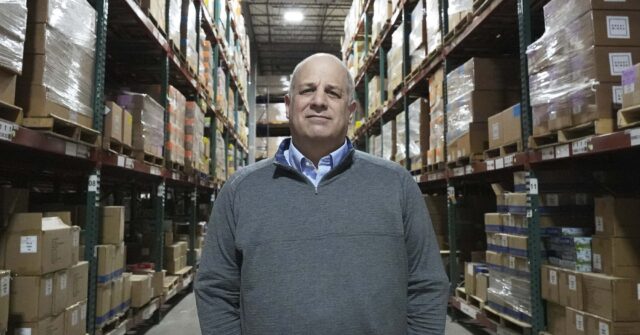Learning Resources, Inc., a manufacturer of educational toys based in Illinois, sued President Donald Trump and multiple Cabinet officials in D.C. on Tuesday over his tariffs, calling them an “executive branch power grab.”
The lawsuit is one of several that have been filed against the tariffs. But unlike California Governor Gavin Newsom’s lawsuit, which likely lacks standing, the Learning Resources suit has a plaintiff who has suffered clear and direct damages.
The irony is that Learning Resources is precisely the kind of business that Trump’s tariffs are meant to help: a relatively small, fourth-generation family-owned manufacturing business, making products beloved by its customers, with hundreds of jobs in the United States.
CEO Rick Woldenberg has said that he is prepared to move more manufacturing operations to the U.S., but that it takes time, and that the tariffs, as they stand, will put him out of business before he can do so.
“Plaintiffs have faced and survived significant challenges in the past two decades, including the Great Recession and COVID-19 pandemic, but the President’s unilateral tariffs are now posing the greatest challenge of their existence,” the complaint says.
The company relies on imports from a variety of other countries, including China, and has seen its tax bill rise, overnight, since tariffs are paid by American importers before other countries suffer the indirect cost.
“Having previously planned for sales to increase by 8 percent, Plaintiffs are now planning for a 2025 sales decline of 25 percent to 50 percent year-over-year,” the complaint states.
Learning Resources argues that President Trump exceeded his powers: “Neither the Constitution nor the International Emergency Economic Powers Act (“IEEPA”) grants the President tariff-levying authority at all, let alone of the limitless type asserted here.”
It adds (original emphasis):
The plain text of IEEPA does not clearly—or even colorably—authorize the President to impose tariffs at all, much less tariffs of any size, duration, and scope. The statute nowhere mentions “tariffs,” “duties,” or other revenue-raising mechanisms. And no President has used IEEPA to impose tariffs in the past.
…
Indeed, where Congress has granted the President power to impose tariffs and duties, it has done so through highly reticulated statutory schemes that are clear in their authorization and limited in their scope. Laws such as the Tariff Act of 1930 and the Trade Act of 1974 provide authority to the President to impose tariffs, but no law provides that authority by saying merely that the President may “regulate” imports and exports. Laws providing authority to impose tariffs instead provide that authority through language that expressly references tariffs and duties that raise revenue.
…
Even if the tariffs could address the trade deficit or the circumstances that cause it, the tariffs the President has imposed are incredibly overbroad, as they apply to countries with whom we run a trade surplus and to countries that do not charge tariffs on American goods.
The lawsuit also objects to the way in which the tariffs were calculated, calling them arbitrary and arguing that “the ‘reciprocal’ tariff rates were calculated not by looking at the rates these countries charge the United States or by identifying any specific non-tariff barriers to trade.
The case is Learning Resources v. Trump, U.S. District Court for the District of Columbia, No. 1:25-cv-01248.
Joel B. Pollak is Senior Editor-at-Large at Breitbart News and the host of Breitbart News Sunday on Sirius XM Patriot on Sunday evenings from 7 p.m. to 10 p.m. ET (4 p.m. to 7 p.m. PT). He is the author of The Agenda: What Trump Should Do in His First 100 Days, available for pre-order on Amazon. He is also the author of The Trumpian Virtues: The Lessons and Legacy of Donald Trump’s Presidency, now available on Audible. He is a winner of the 2018 Robert Novak Journalism Alumni Fellowship. Follow him on Twitter at @joelpollak.
Read the full article here
